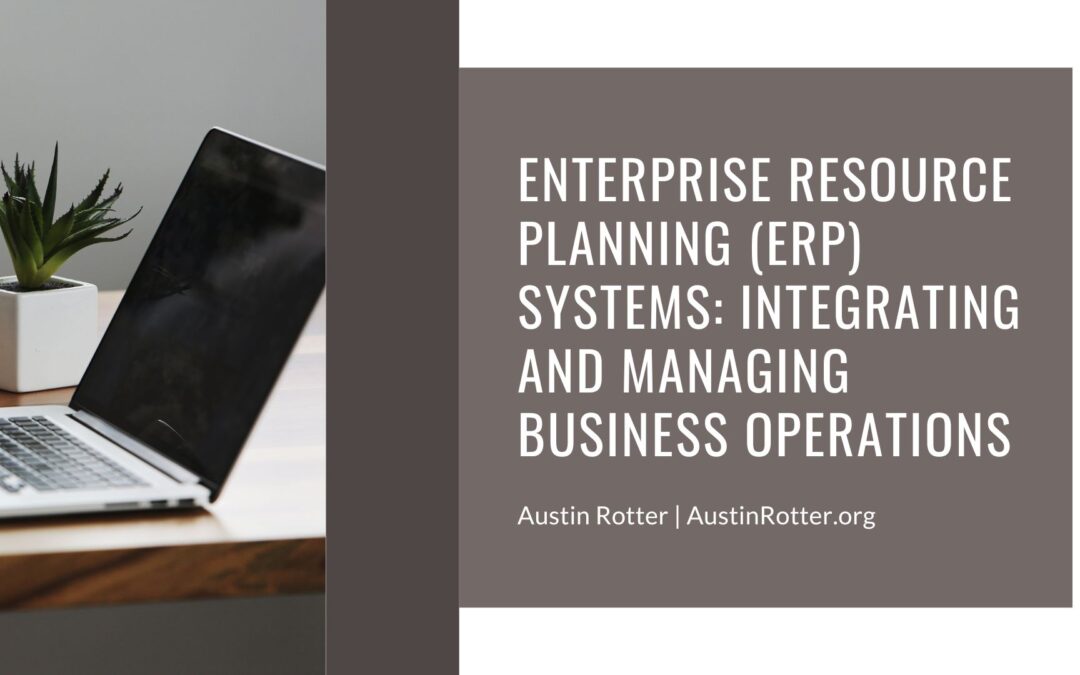In the ever-evolving landscape of business management, efficiency and integration are paramount. Enter Enterprise Resource Planning (ERP) systems – a game-changing technology that consolidates and streamlines various business processes into a unified platform. ERP systems offer a holistic solution for managing and integrating diverse operations from finance and human resources to supply chain and customer relationship management.
Centralized Data Management
One of the primary advantages of ERP systems is the centralization of data. Instead of maintaining separate databases for different functions, an ERP system integrates all relevant information into a cohesive platform. This centralized data management ensures accuracy, eliminates redundancy, and provides real-time insights into various aspects of business operations.
Seamless Integration Across Departments
Traditional business models often operate in silos, with different departments using disparate systems that don’t communicate effectively. ERP systems break down these barriers by seamlessly integrating processes across departments. Whether it’s finance, human resources, manufacturing, or sales, an ERP system ensures that information flows seamlessly, fostering collaboration and enhancing overall efficiency.
Improved Decision-Making with Real-Time Analytics
Informed decision-making is the cornerstone of successful business operations. ERP systems offer real-time analytics and reporting capabilities, providing decision-makers with up-to-date insights into key performance indicators (KPIs). This empowers leaders to make data-driven decisions, identify trends, and proactively respond to changing market conditions.
Enhanced Customer Relationship Management (CRM)
A satisfied customer is the best business strategy, and ERP systems are pivotal in enhancing customer relationship management. By consolidating customer data, tracking interactions, and streamlining order fulfillment processes, ERP systems enable businesses to provide a seamless and personalized customer experience. This not only improves customer satisfaction but also contributes to long-term customer loyalty.
Efficient Supply Chain Management
Managing the supply chain is a complex task for businesses involved in manufacturing or distribution. ERP systems provide end-to-end visibility into the supply chain, from procurement and production to distribution and logistics. This transparency allows for better inventory management, reduced lead times, and a more responsive and agile supply chain.
Streamlined Financial Management
Financial management is at the core of any business, and ERP systems excel in streamlining financial processes. An ERP system ensures accuracy and compliance from accounting and budgeting to invoicing and financial reporting. This saves time, reduces the risk of errors, and enhances financial transparency.
Increased Productivity and Efficiency
ERP systems significantly increase productivity and efficiency by automating repetitive tasks and eliminating manual data entry. Employees can focus on more strategic and value-added activities while the system handles routine processes seamlessly. This reduces the risk of errors and frees up valuable innovation and strategic planning time.
Scalability for Future Growth
As businesses evolve and grow, scalability becomes a critical factor. ERP systems are designed to scale with the organization, adapting to changing needs and expanding operations. Whether adding new users, integrating additional modules, or expanding to new markets, ERP systems provide the flexibility to support future growth.
Enterprise Resource Planning (ERP) systems have become indispensable tools for businesses looking to integrate and manage their operations efficiently. From centralized data management to streamlined financial processes and enhanced customer relationship management, ERP systems empower organizations to stay competitive in today’s dynamic business environment. As technology continues to advance, embracing ERP solutions is not just a strategic choice; it’s a proactive step towards optimizing business operations and ensuring sustainable success in the long run.
